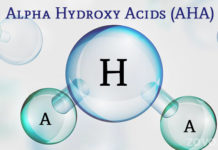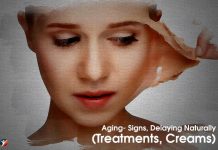
Do you desire to have a glamorous bronze complexion? Well, who wouldn’t? Hitting the beach on a sunny day may seem an excellent idea to fulfill your longing, but unfortunately, sun rays are not that soothing. Skin cancer has encroached many lives, so much that sunbathing has become more like a death bed. But, amidst all the chaos, self-tanners have emerged as a savior. Being available as lotions and sprays, these tanners have eased up everyone’s life. The idea of getting a tanned skin, without basking in the sun, seems wonderful, isn’t so? It’s like carrying all the goodness of sunlight in your pocket!
Well, as magnificent as it seems, you may be taken aback with the fact that these self-tanners are not entirely safe. Before digging into its safety, let’s first know how these self-tanners work.
How Self-Tanners Work?
Self-tanner sprays and lotions darken our skin due to its main ingredient, dihydroxyacetone (DHA). This supposed-to-be miraculous chemical is derived from cane or beet sugar. Up on application, DHA reacts with the amino acids of the topmost layer of the skin and gives it a tanned look. Now, if we keep aside all the beautifying abilities of self-tanners, a major question that we can’t overlook is – What hazards do they pose?
Potential Risks of Self-Tanners

Anything, which is marketed, comes with an evident label of safety. This safety is ensured by some regulatory body. While most of us may think beauty and cosmetic products to receive the approval by the U.S.FDA, it is not so. In fact, the FDA does not approve any cosmetic product, but only regulates other regulatory bodies to do so. In the U.S., Federal Food, Drug and Cosmetic Act (FD&C Act) provides the seal of approval to beauty products under the regulation of the FDA.
When it comes to self-tanners, DHA has been considered safe by the FD&C Act, but only when applied externally. Therefore, these must not be used in the mouth, ears, eyes, inside the nose and any other openings of the body. Now, that you know what your self-tanner’s label should read, let’s get straight to our question of concern here – how safe are self-tanners?
As already stated, these are absolutely safe when used on the skin. But, are you sure, you are not exposing your insides to these sprays or lotions?!
Well, let’s put it this way – do you have any open wound on your skin? Or, are you unknowingly inhaling DHA in the spray salon? If yes, you have gone past the safe zone. According to medical experts, applying DHA on open wounds is giving it a way to your bloodstream, which can be harmful to your health. Also, inhaling the spray has shown to increase the risk of breathing diseases like asthma, chronic obstructive pulmonary disease (COPD), and even cancer.
Now, some may question that whether DHA could reach the bloodstream even if applied on the skin with no open wounds? No, it could never. Dr. Anita Cela, a leading dermatologist in New York, personally vouches for the safety of these tanners when applied on the intact, wound-less skin.
Unveiling another aspect of these tanners, Dr. Angela Lamb, Director of the Westside Mount Sinai Dermatology Faculty Practice in New York, states that although self-tanners are safe when applied on the outsides of your skin, there is always a possibility of developing an allergic reaction to it. So, it is not uncommon for people to get a rash after application of a self-tanner lotion or after a tanner spray salon appointment.
Another dark side of DHA has been recently reported, according to which, DHA can pace up your aging. Basically, the free radicals of the skin gets damaged with time and sun exposure. This damage is the culprit behind those horrid wrinkles, fine lines and blemishes. To top it all, if you are a regular consumer of self-tanners, you may age much faster as DHA boosts up the free radical damage.
Another factor that might discourage you to continue using self-tanner sprays or lotions is their smell. It is not uncommon to develop an offensive, yeast-like smell of dinner rolls or biscuits after a self-tanner experience. In worse cases, you may even smell like an old gym sock or a dog or cat. However, upcoming brands are struggling to replace this filthy smell with a pleasant one.
Conclusion
To extrapolate from all the facts, you are good to go with these self-tanners as long as you are not inhaling it or not letting it get into your bloodstream through open wounds.
Another question that emerges here is that which is better – lotion or self-tan spray? Dr. Cela recommends a self-tan lotion as she believes that it is impossible to use a self-tan spray without inhaling anything.
Basically, no matter what you choose, avoid letting DHA enter your body and keep it restricted to the topmost layer of the skin.
But, if you are still fretting over it, you can always choose not to use these tanners at all. Learn to embrace the natural tone of your skin. Make it a rule to never miss out on sunscreen when stepping out.
Healthy skin always outshines glamorous skin!










